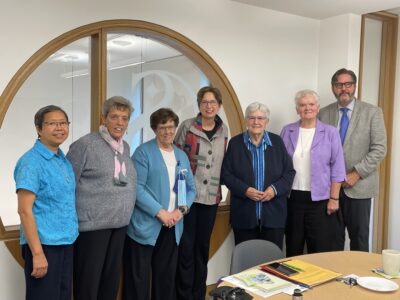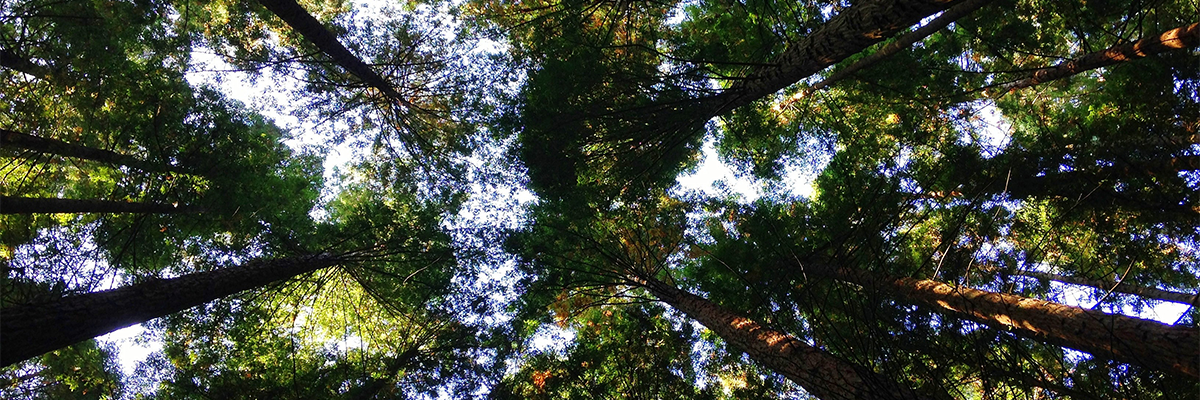
Dr. Hilda Koster, a professor of feminist theology and ecotheology, has been named the new holder of the Sisters of St. Joseph of Toronto Chair in Theology. Dr. Koster joined the University of St. Michael’s College’s Faculty of Theology in July 2020 and was appointed head of the Elliott Allen Institute for Theology and Ecology (EAITE) earlier this year.
“We welcome Dr. Hilda P. Koster to the Chair for 2022 onward and look forward to how her eco-feminist perspective will enrich theological studies for students and faculty,” says Sister Georgette Gregory, who is Congregational Leader for the Sisters of St. Joseph of Toronto.
Calling it “a great honour and pleasure” to be named Chair, Dr. Koster says she is grateful for the Sisters’ support for her work, and for that of the Faculty overall, noting that “this Chair reflects the Congregation’s longstanding commitment to theological education in feminist and ecological theology.
“The fact that this important Chair is now attached to the Faculty position in ecological theology offers important recognition of the leadership in the field of ecological theology that the Faculty of Theology, through the Elliott Allen Institute for Theology and Ecology, has provided for the past 30 years,” Dr. Koster says. “I look forward to a closer collaboration with the Sisters of St. Joseph of Toronto and hope to create opportunities for our students to learn from and get involved with the Congregation’s important eco-justice ministry and its advocacy work on clean drinking water.”
The Sisters of St. Joseph of Toronto established a Chair in Systematic Theology at St. Michael’s Faculty of Theology in 2007. Dr. Koster is the third person to hold the Chair, previously held by Dr. Margaret O’Gara and then Dr. James Ginther.
“We welcome this opportunity to support the Faculty of Theology, to commit to the advancement of theological education, and to honour the legacy of our Sisters at St. Michael’s College,” Sister Georgette says. “For 110 years we have contributed to St. Michael’s College as students and as educators in undergraduate and graduate studies. This includes opening St. Joseph’s College (1911 – 2006), a Catholic women’s college and residence. The Sisters and the University of St. Michael’s College will be forever linked by a shared dedication to Catholic education,” she says.
University President David Sylvester describes the Chair in Theology as yet another way the Sisters of St. Joseph of Toronto have offered invaluable service and inspiration to St. Michael’s.
“From teaching and administrative work to their mentoring and residence for students, the Sisters of St. Joseph of Toronto have shown extraordinary leadership at St. Mike’s for over a century,” he says.
“Dr. Koster’s work in ecotheology and feminist theology speaks to issues of critical importance to our world, echoing themes raised in papal documents such as Fratelli Tutti and Laudato si’. We are profoundly grateful for the Sisters’ support, which will help our students as they find ways to respond positively and productively to the concerns and challenges of the modern world,” he says.
Dr. Koster, whose courses this academic year include Our Common Home: The Origins, Theology and Implications of Laudato si’, will be hosting her first St. Michael’s conference in November. The online event, Doing Theology Amid a Changing Climate: Crossing Divides, takes place November 11 and 12 and includes keynote speaker Dr. Ilia Delio’s leture, “Earth’s Fragility and the Crisis of Transcendence: Why Science and Religion Must be Reconciled.”

